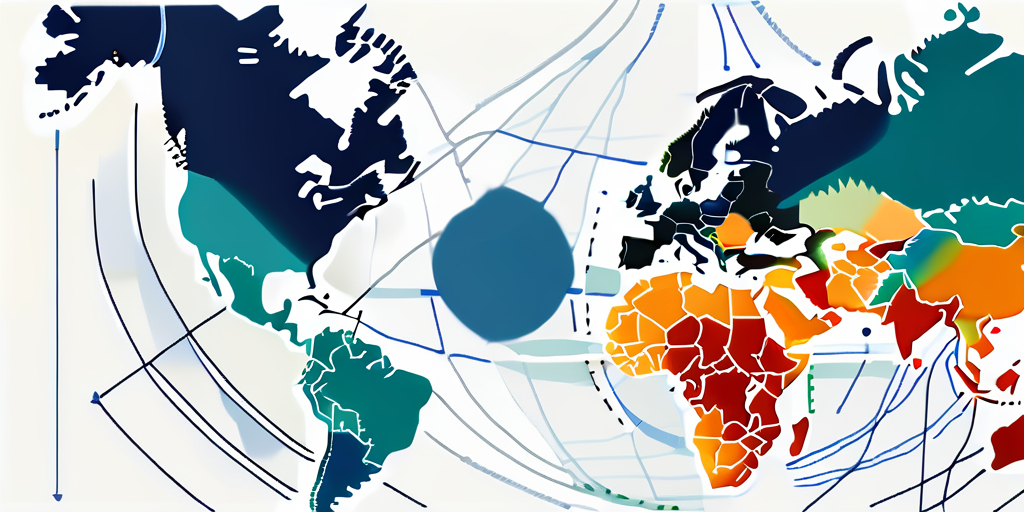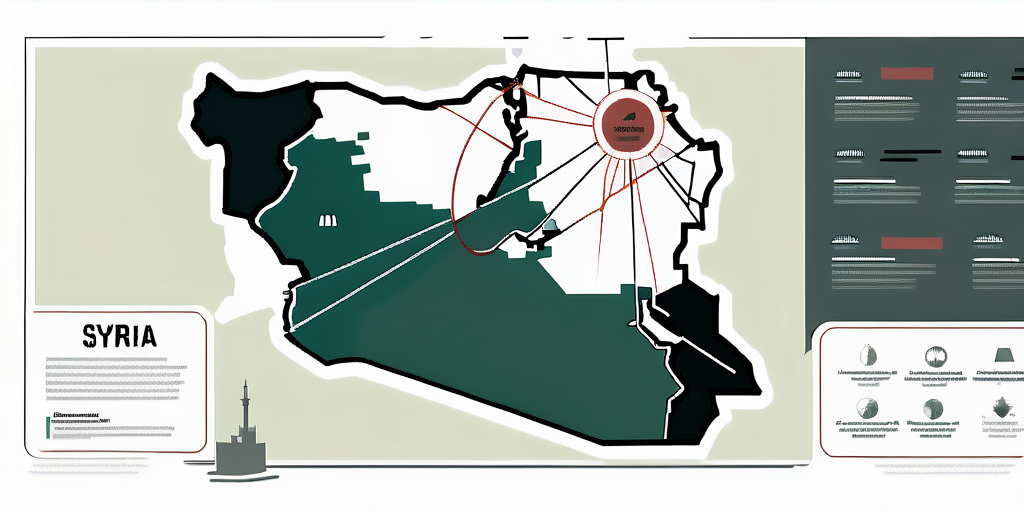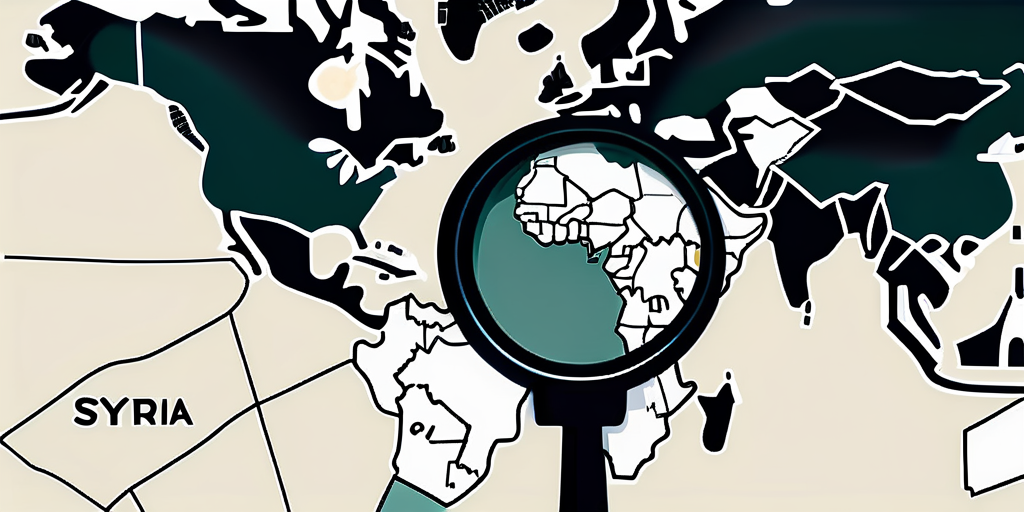In recent years, the conflicts in Syria have not only devastated the nation but have also given rise to a new breed of criminals who have become the targets of Interpol’s intense manhunt. Understanding Interpol’s role in international crime and its efforts to capture Syria’s most wanted is crucial in comprehending the global impact of these heinous acts.
Understanding Interpol’s Role in International Crime
Interpol, short for the International Criminal Police Organization, is an intergovernmental organization that aims to combat transnational crime and promote cooperation between law enforcement agencies worldwide. With its headquarters in Lyon, France, Interpol acts as a bridge between countries, facilitating the exchange of crucial information and enabling joint efforts to bring criminals to justice.

Interpol’s role goes beyond just apprehending criminals; it also focuses on preventing crimes before they occur. Through its various programs and initiatives, Interpol provides training and resources to law enforcement agencies globally, equipping them with the tools needed to tackle emerging threats such as cybercrime, human trafficking, and terrorism.
The Foundation and Purpose of Interpol
Interpol was established in 1923 with the primary objective of preventing and combating all forms of international crime. Guided by its constitution, Interpol works towards maintaining peace and security by coordinating police efforts and sharing intelligence across borders.
Over the years, Interpol has evolved to adapt to the changing landscape of crime, incorporating advanced technologies and analytical tools to enhance its capabilities. This proactive approach enables Interpol to stay ahead of criminals who often exploit vulnerabilities in the global law enforcement network.
Interpol’s Global Reach and Influence
Interpol’s membership comprises 194 countries, making it the largest international police organization worldwide. By collaborating with national police agencies, Interpol ensures that its efforts to apprehend criminals are not confined by national boundaries, thus extending its global reach and influence.
Through its network of National Central Bureaus in member countries, Interpol facilitates seamless communication and cooperation between law enforcement agencies at the local, regional, and international levels. This interconnected system allows for real-time information sharing and operational support, enabling swift and effective responses to criminal activities that transcend borders.
Syria’s Notorious Criminals
The Syrian conflict has given rise to a number of nefarious individuals, each committing heinous crimes against innocent civilians. These criminals, whose actions have garnered international attention, have been added to Interpol’s most wanted list, highlighting the severity of their offenses.

As the conflict in Syria continues to unfold, the stories of these notorious criminals have become emblematic of the suffering and turmoil that has plagued the nation. Their names are synonymous with fear and devastation, serving as a stark reminder of the human cost of war.
Profiles of Syria’s Most Wanted
Among the most wanted figures are individuals who have commanded militant groups and orchestrated brutal attacks against civilians. Their names echo in the hearts of Syrians, reminding them of the atrocities that have taken place within the boundaries of their own nation.
These individuals have exploited the chaos of war to further their own agendas, instilling fear and perpetuating violence in communities already reeling from conflict. The impact of their actions extends far beyond the physical harm they have caused, leaving psychological scars that may take generations to heal.
The Crimes That Put Them on the List
The crimes committed by Syria’s most wanted individuals range from acts of terrorism to war crimes. From bombings to massacres, each act has left an indelible mark on the victims and their families, while simultaneously ravaging the social fabric and infrastructure of Syrian communities.
Their atrocities have not only resulted in loss of life but have also led to the displacement of countless individuals, creating a refugee crisis of unprecedented proportions. The scars of their crimes are not limited to the physical realm but also manifest in the shattered trust and fractured relationships that once bound communities together.
The Challenges of Capturing Syria’s Most Wanted
The task of capturing Syria’s most wanted criminals poses significant challenges for Interpol and local law enforcement agencies. Political and geographical obstacles coupled with the complex nature of the conflict make their arrest an arduous endeavor.
Political and Geographical Obstacles
The ongoing conflict in Syria has created a chaotic and unstable environment, making law enforcement efforts even more difficult. The presence of multiple armed groups, each with its own agenda, often hampers investigations and complicates coordination between countries.
The Role of Local Law Enforcement
Local law enforcement agencies play a crucial role in capturing Syria’s most wanted criminals. Interpol relies on strong partnerships with these agencies, ensuring that the necessary support and expertise are provided to effectively address and mitigate the security challenges posed by these notorious individuals.
Interpol’s Strategies and Techniques
Interpol employs a range of strategies and techniques to track, locate, and apprehend Syria’s most wanted criminals. These innovative methods, combined with advancements in technology, significantly aid international efforts to bring these criminals to justice.

How Interpol Coordinates International Efforts
Interpol facilitates international cooperation by connecting databases from different countries, allowing for seamless exchange of information. Through its global network of National Central Bureaus, Interpol ensures that relevant data is accessible, enabling law enforcement agencies worldwide to take coordinated action against criminals.
Technological Tools in Modern Crime Fighting
In the digital age, Interpol leverages advanced technology to combat transnational crime effectively. Techniques such as facial recognition software, biometrics, and secure communications systems enhance the speed and accuracy of investigations, bringing law enforcement agencies closer to capturing Syria’s most wanted criminals.
The Impact on Syria and the International Community
The high-profile nature of the crimes committed by Syria’s most wanted criminals reverberates not only within the borders of the nation but also across the globe. Understanding the consequences of these acts is essential for comprehending the broader implications they have on the international stage.
The Consequences of High-Profile Crime in Syria
The crimes perpetrated by Syria’s most wanted individuals have devastating consequences for the nation. Innocent lives are lost, families are torn apart, and communities struggle to rebuild amidst crippling destruction. The scars left by these crimes will take generations to heal.
The Global Implications of Syria’s Most Wanted
The actions of Syria’s most wanted criminals impact the international community in several ways. They fuel regional instability, pose a threat to neighboring countries, and have potential links to global terrorist networks. Capturing these criminals is paramount to ensuring global security and preventing further acts of violence.
As Interpol relentlessly pursues Syria’s most wanted criminals, the international community must remain vigilant and supportive. By understanding Interpol’s role, the profiles of these criminals, the challenges faced in capturing them, and the strategies employed, we can collectively work towards a safer and more just world, where the perpetrators of such heinous crimes are held accountable for their actions.
